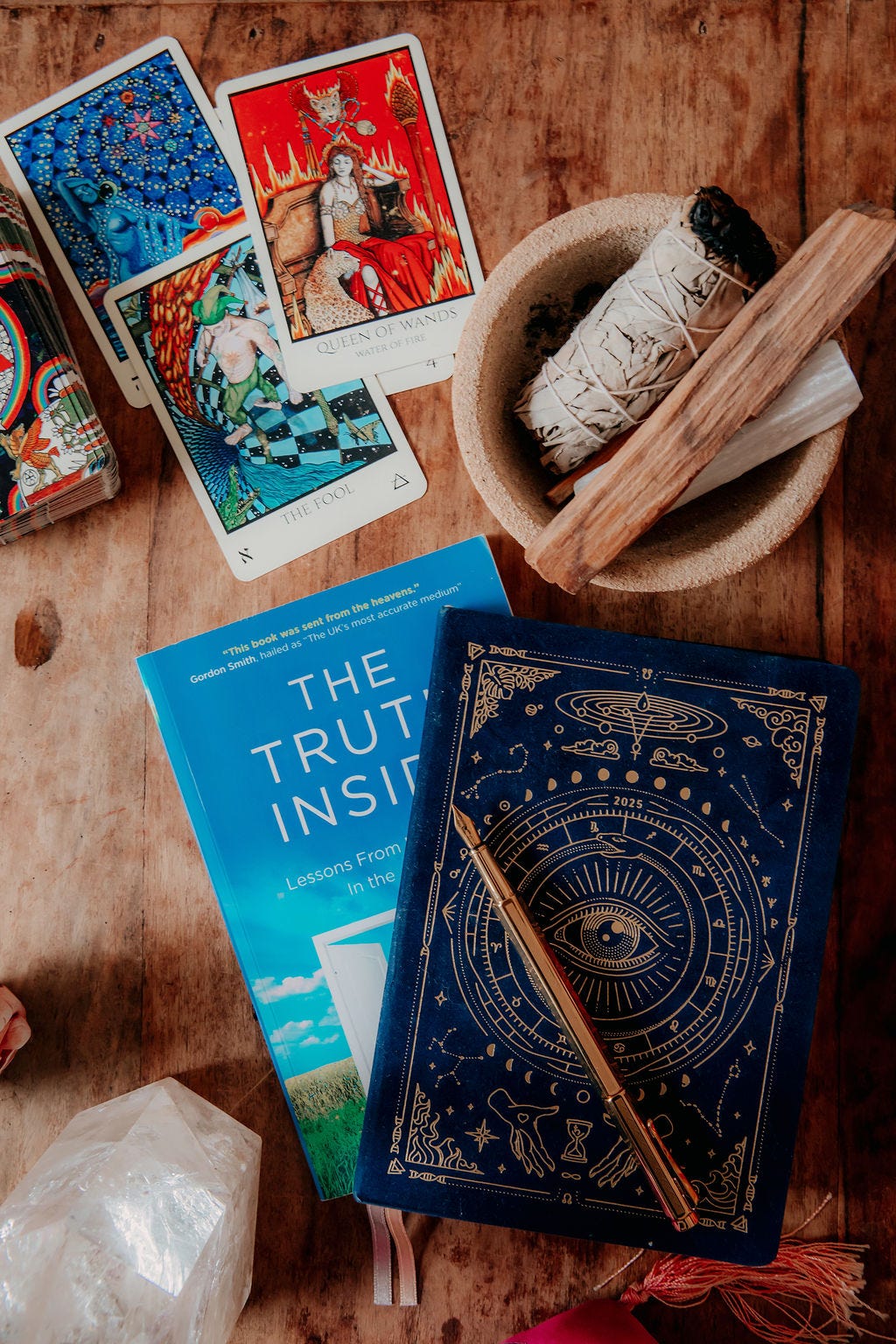Photo credit: Jane Looker Photography
Like many people, I love a new notebook. Clean and unsullied, brimming with the promise of ideas, inspiration, lists efficiently crossed through, dreams placed into words. Productivity.
While preparing for a forthcoming circle I’m hosting, I recently unearthed no less than twelve notebooks. Twelve! Some of them are un…
Keep reading with a 7-day free trial
Subscribe to The Truth Inside to keep reading this post and get 7 days of free access to the full post archives.


